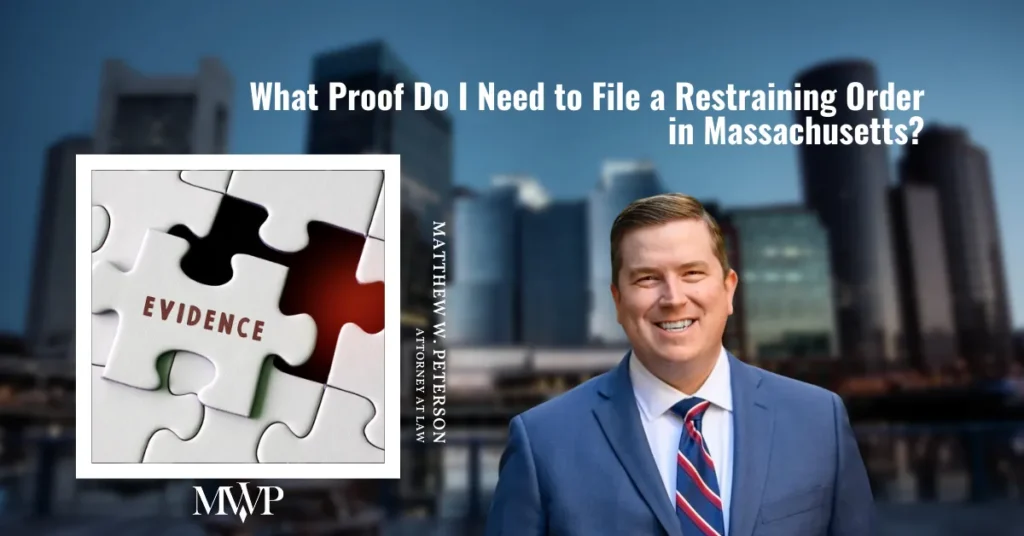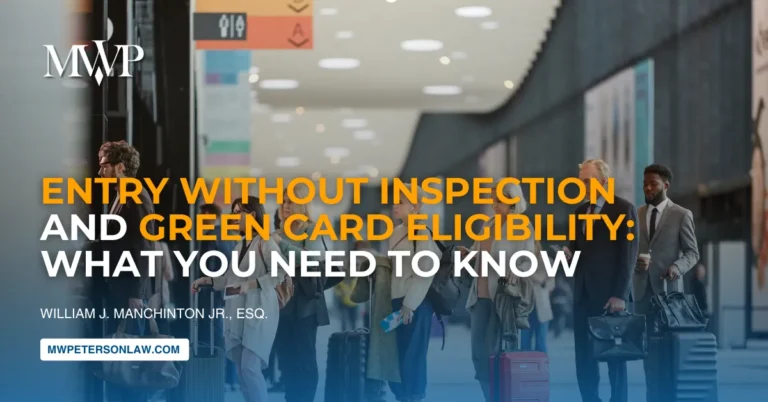If you’re seeking to file a restraining order in Massachusetts, understanding the required proof and process is crucial. The state recognizes two distinct types of restraining orders, each with specific requirements depending on your relationship with the person you’re filing against. Here’s how the Law Office of Matthew W. Peterson will help you.
Types of Restraining Order in Massachusetts
209A Order (Abuse Prevention Order)
This order applies when you have a family or household relationship with the person you’re filing against. You must provide proof of abuse directed at you. In Massachusetts, abuse has a broad definition that includes:
- Physical harm or threats of physical harm
- Coercive control (a recent addition to Massachusetts law)
- Financial control
- Other forms of domestic abuse
258E Order (Harassment Prevention Order)
This order is appropriate when there is no family or household relationship. To obtain this order, you must prove three separate incidents of harassment specifically targeted at you, the plaintiff, rather than another person.
Understanding the Requirements for Filing a Restraining Order in Massachusetts
While documentary evidence strengthens your case, it’s not always mandatory. A restraining order in Massachusetts can be granted based solely on your testimony if the judge finds it credible. However, gathering the following types of evidence can significantly support your case:
- Text messages
- Testimony
- Police Report
- Emails
- Photographs
- Videos
- Statements from witnesses
Importantly, formal rules of evidence don’t apply in restraining order hearings. This means hearsay and other evidence that might not be admissible in a regular trial can be presented to support your case. It’s crucial to document specific incidents, including dates and details of abusive behavior, to strengthen your case. Additionally, if there are any witnesses or recordings of threats, these can significantly bolster your application for a restraining order.
The Filing Process
- Initial Filing: The process for filing a restraining order typically begins at your local courthouse or through a domestic violence service provider. You will need to fill out the necessary forms detailing the abuse or harassment you’ve experienced. After submitting your application, a judge will review your case and may issue a temporary restraining order (TRO) if they find sufficient evidence.
- Two-Party Hearing: A court hearing will then be scheduled within 10 days to determine whether to extend the order. It is advisable to seek legal assistance when navigating this process, as an attorney can help ensure that all necessary documentation is accurately presented and that your rights are protected throughout the hearing.
Resources for Support
If you are considering filing a restraining order, various resources are available to assist you.
Additionally, local shelters and hotlines can offer immediate assistance and safety planning. Remember, you do not have to face this situation alone; reaching out for help can be a crucial step toward ensuring your safety and well-being.
Legal Representation
The legal process for obtaining a restraining order can be complex and emotionally challenging. To protect your safety and ensure the best possible outcome, consider working with an experienced Boston restraining order attorney who can:
- Help prepare your affidavit
- File the necessary paperwork
- Represent you at both the initial and two-party hearings
- Guide you through gathering and presenting evidence
Your safety is paramount. If you’re considering filing a restraining order in Massachusetts, seeking professional legal guidance can help ensure your rights are protected throughout the process.
The Law Office of Matthew Peterson assists clients throughout Restraining Order in Massachusetts cases. Contact us today for a consultation.
Related Articles:
How to fight a restraining order in MA?
Triumph in Lynn District Court: This Restraining Order in Lynn Dismissal Could Be Your Story Too











